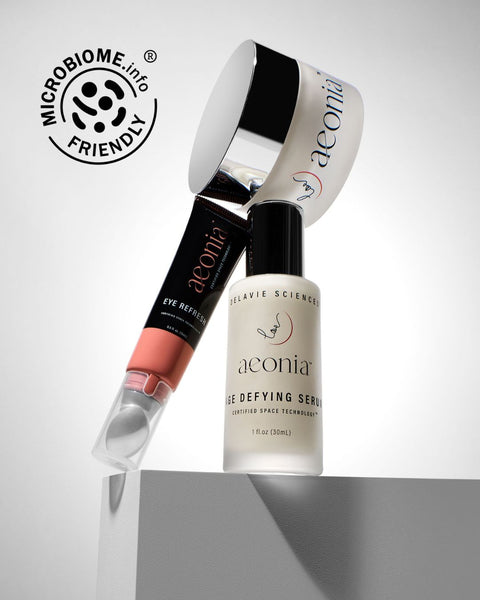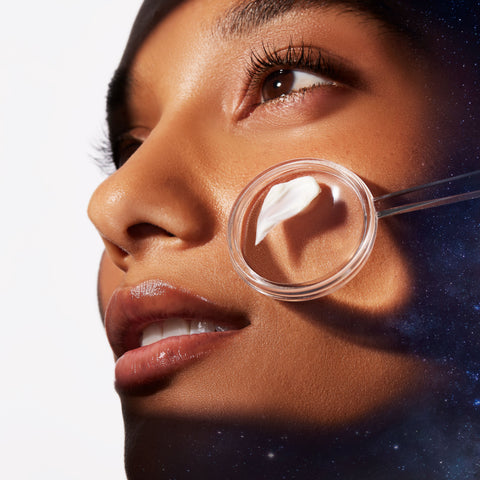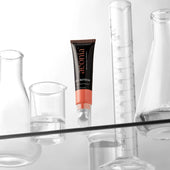WHAT IS THE MICROBIOME?
The human microbiome is a collection of microorganisms, bacteria, fungi, and viruses (microbes) that live inside and outside the human body. Essentially, it is the gateway between our body and the environment around us. It contributes to our health and wellness by protecting us against pathogens, helping our immune system develop, and allowing us to produce energy through digesting food. On the contrary, if the microbiome is unbalanced it can promote negative effects. Having a healthy, balanced microbiome is essential to having healthy, beautiful skin.
How Does the Microbiome Affect our Skin?
The skin microbiome is a collection of microbes that influence the appearance and performance of our skin by boosting barrier protection and aiding in immune defenses. The skin microbiome has been shown to have a direct relationship with the gut’s microbiome, known as the gut-skin axis. This means that any excessive good, or bad, bacteria in the gut will have an impact on the skin, and vice versa. Therefore, to maintain a healthy skin microbiome, you must not only consider what you put on your skin, but also how you fuel your body.
Probiotic vs. Prebiotic Skincare
Probiotics are live bacteria that affect the digestive system in the body; they can be found in foods, such as yogurt, or taken as a dietary supplement. On the other hand, prebiotics act as “food” for the probiotics in your body to stimulate healthy bacteria growth.
Including probiotics and prebiotics in skincare can provide benefits, such as supporting the skin barrier. This is important because negative impacts on the skin microbiome weaken the skin barrier, which can lead to irritation, redness, dryness, or sensitivity, and can worsen some skin conditions. Probiotic skincare has potential to mitigate inflammation, fight against free radical damage, hydrate the skin, and deflect any harmful bacteria. However, the shelf life on these products is limited due to the live bacteria requiring special storage, including refrigeration. Prebiotic skincare assists to keep the skin microbiome balanced and healthy, which can reduce redness, inflammation, signs of aging and maintaining a strong barrier. Overall, both probiotics and prebiotics can provide benefits when added into your skincare routine.
Microbiome-Friendly Skincare: What to Do and What Not to Do
Now that you are an expert in all things microbiome, you are ready to hit the skincare market and avoid products that are not formulated to consider the skin barrier. For example, products that are comedogenic, disrupt the skin’s desired pH levels, kill beneficial bacteria or grow harmful bacteria all affect the skin microbiome’s symbiosis. Carefully choose products that promote a healthy skin microbiome.

Microbiome-Friendly Products: Aeonia
Here at Delavie Sciences, we are scientists and use our knowledge to develop superior skincare products by considering effects down to the microbiological level.
Bacillus Lysate, Delavie’s patented Certified Space Technology™, is a prebiotic and featured in the Aeonia Age Defying Serum formulation. Additionally, Bacillus Lysate and the Aeonia Age Defying Serum are certified Microbiome-friendly by MyMicrobiome. The MyMicrobiome Standard assesses cosmetic and personal care products based on four different criteria including the product’s influence on the natural and healthy skin balance, the bacterial diversity, the growth behavior of the microbes, as well as the microbial quality. Therefore, both the raw ingredient and the final product have been tested and proven to be gentle on the skin bacteria and promote a healthy microbiome.
References:
“Microbiome,” National Institute of Environmental Health Sciences
“What is microbiome-friendly skin care? Experts explain why it’s the key to balanced, healthy skin,” CNN underscored
“Why You Need to Start Paying Attention to Your Skin Microbiome – Especially Now,” Vogue
“What’s the Difference Between Prebiotic and Probiotic Skincare?” InStyle
“The Importance of Prebiotics,” MyLifespan
“Why are there prebiotics in my skin care?” LovelySkin










